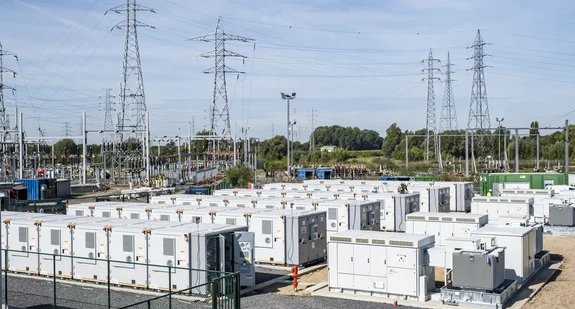BESS
BESS (Battery Energy Storage Systems) are advanced energy solutions that store electricity for use at a later time, helping to balance energy supply and demand. These systems use rechargeable batteries—typically lithium-ion, but also lead-acid, flow, or sodium-based technologies—to store energy generated from various sources, including solar, wind, and the grid itself.
BESS plays a critical role in modern energy systems, especially in supporting renewable energy integration. Renewable sources like solar and wind are intermittent—producing power only when the sun shines or the wind blows. BESS helps smooth out these fluctuations by storing excess energy during peak generation periods and releasing it during times of low generation or high demand.
Battery Energy Storage Systems can operate at various scales:
-
Residential: Providing backup power and managing home solar energy use
-
Commercial & Industrial: Reducing demand charges, ensuring uninterrupted operations
-
Utility-Scale: Stabilizing the grid, providing frequency regulation, and supporting peak load management
Key benefits of BESS include:
-
Energy reliability: Ensures continuous power even during outages or grid failures
-
Grid stability: Helps maintain voltage and frequency balance
-
Time-shifting capability: Stores cheap or surplus electricity and delivers it during peak pricing
-
Emission reduction: Enhances the efficiency of renewable energy usage
-
Fast response times: Ideal for managing sudden demand spikes or drops
BESS can also participate in ancillary services markets, offering services like load leveling, black start capability, and demand response.
Despite the advantages, BESS faces some challenges such as:
-
High initial cost (especially for large-scale lithium-ion systems)
-
Limited lifespan and degradation over time
-
Thermal management and fire safety concerns
-
Material sourcing and recycling of battery components
Technological advancements and economies of scale are rapidly improving battery performance, reducing costs, and expanding deployment globally. Innovations such as solid-state batteries, hybrid energy systems, and AI-based energy management are further accelerating the adoption of BESS.
In summary, Battery Energy Storage Systems are a cornerstone of the transition to a clean, flexible, and resilient energy future. They are essential for maximizing the value of renewable energy, reducing emissions, and modernizing power infrastructure for the 21st century.
